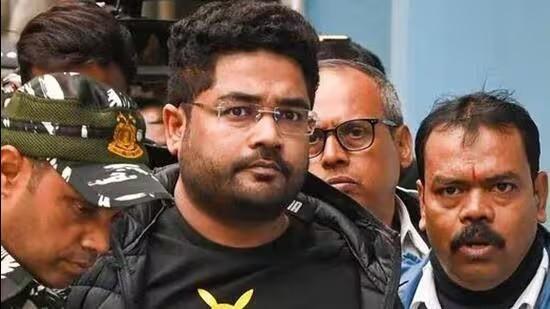 |
|
The Supreme Court's decision to grant regular bail to Kuntal Ghosh, a former Trinamool Congress youth leader, marks a significant development in the ongoing investigation into the West Bengal primary school recruitment scam. Ghosh's involvement in this complex case, which has garnered considerable public attention and political scrutiny, has been a subject of intense debate and legal maneuvering. The bail order, while seemingly offering a degree of freedom to Ghosh, comes with stringent conditions designed to ensure his cooperation with the ongoing investigation and prevent any potential interference with the judicial process. The court's directive prohibiting Ghosh from leaving the state without prior permission from the trial court underscores the seriousness with which the judiciary views his case. This restriction aims to guarantee his availability for future proceedings and to minimize the risk of him evading justice. The added condition of refraining from media engagement regarding the case is equally crucial. It aims to safeguard the integrity of the ongoing investigation and prevent any potential prejudice to the judicial process through premature or biased public pronouncements.
The implications of this Supreme Court ruling extend beyond the immediate implications for Ghosh himself. The case has become a potent symbol of the broader political landscape in West Bengal, and the ongoing legal battles reflect deeper tensions and power struggles within the state. The ruling serves as a reminder of the delicate balance between upholding the rights of the accused and ensuring the efficacy of the investigative and judicial processes. The court's careful consideration of the conditions of bail highlights the need for a cautious approach, one that prevents any potential obstruction of justice while simultaneously upholding the principles of fair trial and due process. The conditions imposed on Ghosh, particularly the restrictions on his movement and media communication, reflect a conscious effort to maintain the integrity of the ongoing investigation and avoid prejudicing the case.
The West Bengal primary school recruitment scam itself remains a complex and multifaceted issue. Allegations of widespread irregularities, favoritism, and corruption have cast a long shadow over the state's education system. The investigation, led by the Central Bureau of Investigation (CBI), is a protracted and challenging undertaking, requiring the meticulous examination of a vast amount of evidence and the careful consideration of numerous testimonies. The case highlights the urgent need for transparency and accountability in the recruitment processes within public institutions. The ongoing legal battles and the high-profile nature of individuals involved underscore the gravity of the accusations and the significant public interest in the outcome. The ultimate goal of the investigation is not merely to prosecute individual wrongdoers but to ensure that systemic issues within the recruitment process are addressed and rectified to prevent future instances of similar irregularities.
The Supreme Court's decision, therefore, must be viewed within the broader context of the ongoing investigation and the larger political and social implications of the West Bengal primary school recruitment scam. The granting of bail, while seemingly a victory for Ghosh, must be understood in light of the constraints imposed upon him. These restrictions demonstrate a commitment to preserving the integrity of the judicial process and maintaining the fairness of the trial. The case continues to be a subject of significant public interest and political discourse, and the Supreme Court's ruling will undoubtedly have lasting ramifications on the course of the investigation and the broader political climate within West Bengal. Further developments are eagerly anticipated, and the outcome of the trial will undoubtedly have significant implications for the future of transparency and accountability within the state's education system.
